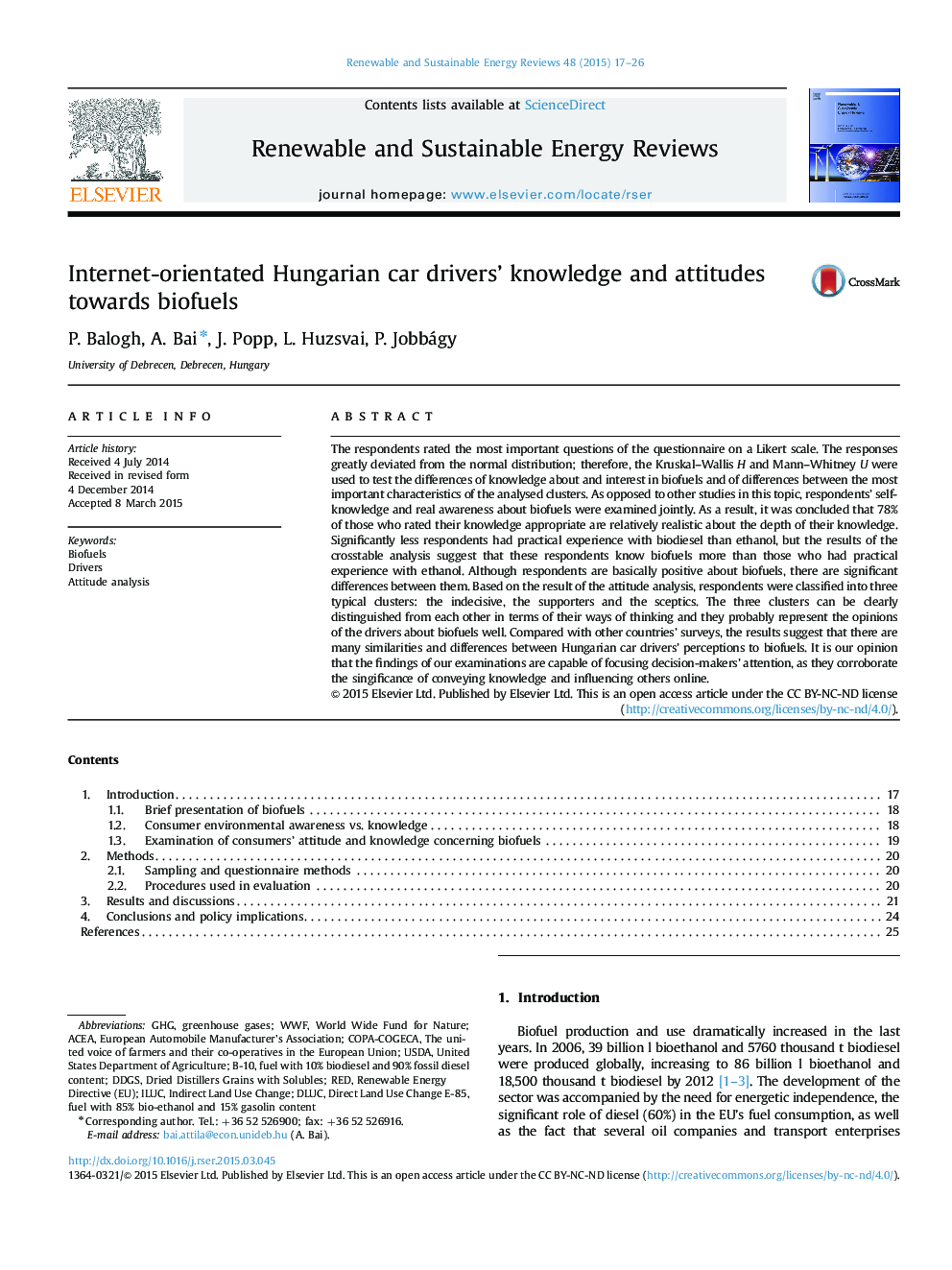| Article ID | Journal | Published Year | Pages | File Type |
|---|---|---|---|---|
| 8116399 | Renewable and Sustainable Energy Reviews | 2015 | 10 Pages |
Abstract
The respondents rated the most important questions of the questionnaire on a Likert scale. The responses greatly deviated from the normal distribution; therefore, the Kruskal-Wallis H and Mann-Whitney U were used to test the differences of knowledge about and interest in biofuels and of differences between the most important characteristics of the analysed clusters. As opposed to other studies in this topic, respondents' self-knowledge and real awareness about biofuels were examined jointly. As a result, it was concluded that 78% of those who rated their knowledge appropriate are relatively realistic about the depth of their knowledge. Significantly less respondents had practical experience with biodiesel than ethanol, but the results of the crosstable analysis suggest that these respondents know biofuels more than those who had practical experience with ethanol. Although respondents are basically positive about biofuels, there are significant differences between them. Based on the result of the attitude analysis, respondents were classified into three typical clusters: the indecisive, the supporters and the sceptics. The three clusters can be clearly distinguished from each other in terms of their ways of thinking and they probably represent the opinions of the drivers about biofuels well. Compared with other countries' surveys, the results suggest that there are many similarities and differences between Hungarian car drivers' perceptions to biofuels. It is our opinion that the findings of our examinations are capable of focusing decision-makers' attention, as they corroborate the singificance of conveying knowledge and influencing others online.
Keywords
Related Topics
Physical Sciences and Engineering
Energy
Renewable Energy, Sustainability and the Environment
Authors
P. Balogh, A. Bai, J. Popp, L. Huzsvai, P. Jobbágy,
